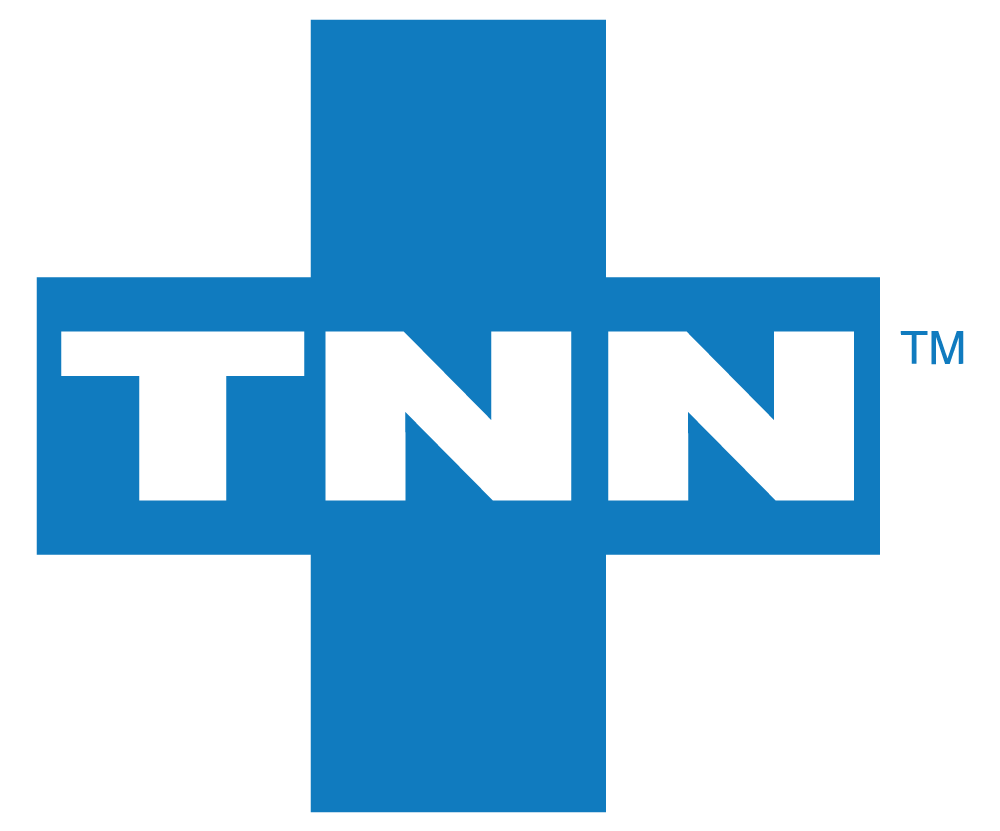
TNN Bulletin
Nursing is a noble profession that requires dedication, compassion, and a desire to help people. Nurse case managers play a crucial role in healthcare by ensuring that patients receive the best possible care. They work closely with patients, healthcare providers, and insurance companies to coordinate care, manage treatment plans, and ensure that patients have access to the resources they need. As such, there is a high demand for nurse case managers in healthcare organizations across the country.
This comprehensive guide will provide you with everything you need to know about becoming a nurse case manager. It will cover the importance and demand for nurse case managers, the role and responsibilities of the position, and the personal qualities and skills required to be successful in this field.
A nurse case manager develops, implements, and reviews healthcare plans for patients who are elderly, recuperating from severe injuries, or managing ongoing health conditions. As a nurse case manager, you will act as an advocate for your patients, working tirelessly to ensure that they receive the best possible care. Your responsibilities will include coordinating care between healthcare providers, developing treatment plans, monitoring patient progress, and ensuring that patients have access to the resources they need.
In addition to having technical skills and knowledge in healthcare, nurse case managers must be able to work autonomously and make quick decisions. They must also be able to work independently, manage complex situations, and make decisions quickly and confidently.
If you are passionate about nursing and want to make a difference in the lives of patients, becoming a nurse case manager may be the perfect career choice for you. This guide will provide you with all the information you need to get started on this rewarding career path.
Nursing is a noble profession that requires dedication, compassion, and a desire to help people. Nurse case managers play a crucial role in healthcare by ensuring that patients receive the best possible care. They work closely with patients, healthcare providers, and insurance companies to coordinate care, manage treatment plans, and ensure that patients have access to the resources they need. As such, there is a high demand for nurse case managers in healthcare organizations across the country.
This comprehensive guide will provide you with everything you need to know about becoming a nurse case manager. It will cover the importance and demand for nurse case managers, the role and responsibilities of the position, and the personal qualities and skills required to be successful in this field.
A nurse case manager develops, implements, and reviews healthcare plans for patients who are elderly, recuperating from severe injuries, or managing ongoing health conditions. As a nurse case manager, you will act as an advocate for your patients, working tirelessly to ensure that they receive the best possible care. Your responsibilities will include coordinating care between healthcare providers, developing treatment plans, monitoring patient progress, and ensuring that patients have access to the resources they need.
In addition to having technical skills and knowledge in healthcare, nurse case managers must be able to work autonomously and make quick decisions. They must also be able to work independently, manage complex situations, and make decisions quickly and confidently.
If you are passionate about nursing and want to make a difference in the lives of patients, becoming a nurse case manager may be the perfect career choice for you. This guide will provide you with all the information you need to get started on this rewarding career path.
How to Become a Nurse Case Manager
Nurse case managers are healthcare professionals who play a critical role in coordinating patient care and ensuring that patients receive the best possible treatment.
We will cover the education and training requirements, certification options, essential skills, personal qualities, and job outlook for this profession. Whether you are a nursing student, a registered nurse, or an experienced healthcare professional looking to transition into a new role, this guide will be your roadmap to a fulfilling career as a nurse case manager.
So, let’s dive in and explore the steps you can take to become a nurse case manager
1. Educational Requirements
Education is a critical component of becoming a nurse case manager. This profession requires a blend of nursing expertise, leadership skills, and patient advocacy. To attain these competencies, aspiring nurse case managers must complete the necessary educational requirements. In this section, we will discuss the educational requirements to become a nurse case manager.
- Bachelor of Science in Nursing (BSN) degree
To begin a career as a case manager, it is necessary to first become a registered nurse (RN). This can be achieved by obtaining an associate’s or bachelor’s degree in nursing (BSN).
A Bachelor of Science in Nursing (BSN) degree is the most common educational requirement for nurse case manager positions. This degree program typically takes four years to complete and includes courses in anatomy and physiology, microbiology, pharmacology, nursing theory, and healthcare ethics. Students also gain hands-on experience through clinical rotations in various healthcare settings.
A BSN program provides students with a broad knowledge base in nursing, with a focus on leadership, critical thinking, and patient-centered care. These competencies are essential for nurse case managers as they coordinate care and advocate for patients’ needs.
- Master of Science in Nursing (MSN) degree
While a BSN degree is sufficient for many nurse case manager positions, some employers prefer or require a Master of Science in Nursing (MSN) degree. MSN programs provide students with advanced knowledge in nursing and healthcare. They offer additional coursework in topics such as healthcare policy, leadership, healthcare finance, and healthcare informatics. Students also have the opportunity to specialize in areas such as case management, healthcare administration, or nursing education. Nurses who hold a master’s degree may be able to progress in their career, which is why pursuing a master’s in nursing is a popular choice.
An MSN degree can lead to higher-paying job opportunities and greater career advancement. Nurse case managers with an MSN degree may be eligible for roles such as director of case management or clinical manager.
- Specialized certifications and additional education
On top of a BSN or MSN degree, nurse case managers may obtain specialized certifications or additional education to enhance their knowledge and skills in the field. These include:
Certified Case Manager (CCM): The CCM certification is offered by the Commission for Case Manager Certification (CCMC). To become certified, nurse case managers must meet education and experience requirements and pass an exam. The certification demonstrates expertise in case management and may lead to higher-paying job opportunities.
Certified Managed Care Nurse (CMCN): The CMCN certification demonstrates expertise in managed care nursing. To become certified, nurse case managers must meet education and experience requirements and pass an exam. The certification is offered by the American Board of Managed Care Nursing (ABMCN).
Continuing education: Nurse case managers can continue their education through workshops, seminars, conferences, and online courses. These opportunities allow them to stay current with the latest advancements and best practices in their field.
Continuing education and professional development are essential for nurse case managers to maintain their skills and knowledge. It is essential to keep up with the rapidly changing healthcare landscape to provide patients with the best possible care.
A BSN or MSN degree is typically required to become a nurse case manager, along with specialized certifications or additional education. These educational requirements provide aspiring nurse case managers with the necessary knowledge and skills to coordinate patient care, advocate for patient’s needs, and lead healthcare teams. Nurse case managers who continue their education and seek out professional development opportunities are better equipped to navigate the complex healthcare landscape and provide patients with high-quality care.
2. Gaining Clinical Experience
Same with any other medical role, gaining clinical experience is an important step for those pursuing a career in nurse case management. Not only does it provide invaluable hands-on experience, but it also helps develop the skills necessary for success in this field. In this section, we will discuss some of the ways to gain clinical experience in nursing.
- Working as a Registered Nurse (RN)
One of the most effective ways to gain clinical experience is by working as a registered nurse (RN). Registered nurses work in various healthcare settings, including hospitals, clinics, nursing homes, and home health agencies. They provide direct patient care, administer medications, perform assessments, and collaborate with other healthcare providers to develop care plans.
Working as an RN provides aspiring nurse case managers with a solid foundation in nursing, allowing them to develop critical thinking, communication, and organizational skills. RNs also work closely with nurse case managers, giving them an opportunity to learn about the role and responsibilities of a nurse case manager.
- Exploring Relevant Nursing Specialties
Another way to gain clinical experience is by exploring relevant nursing specialties. Specializing in a particular area of nursing, such as oncology or pediatrics, provides an opportunity to develop expertise in that field. It also allows for exposure to different patient populations and healthcare settings.
Specializing in a nursing specialty related to case management, such as utilization review or discharge planning, can be particularly beneficial. These specialties involve similar responsibilities to nurse case management, such as coordinating patient care and advocating for patients’ needs.
- Acquiring Experience in Case Management
Obtaining experience in case management is essential for those interested in pursuing a career as a nurse case manager. This can be done in various ways which includes:
Shadowing a nurse case manager: Shadowing a nurse case manager provides an opportunity to observe the role and responsibilities of a nurse case manager firsthand. It allows for exposure to different types of cases and strategies for coordinating patient care.
Volunteering: Volunteering at a healthcare organization, such as a hospital or clinic, provides valuable experience working with patients and healthcare providers. It also demonstrates a commitment to the field of nursing and a desire to improve patient outcomes.
Seeking out case management roles: Positions such as utilization review nurse or discharge planner involve similar responsibilities to nurse case managers. Acquiring experience in these roles can provide a pathway to becoming a nurse case manager.
3. Understanding the Role of Nurse Case Manager
Nurse case managers are responsible for coordinating patient care, advocating for patients’ needs, and ensuring that they receive the best possible care. In this section, we will discuss the key responsibilities of a nurse case manager.
- Collaborating with Healthcare Teams
One of the primary responsibilities of a nurse case manager is collaborating with healthcare teams. This includes working with physicians, nurses, social workers, and other healthcare providers to coordinate patient care. Nurse case managers communicate with healthcare teams to ensure that patients receive timely and appropriate care. They also provide updates on patients’ progress and communicate any changes in their condition.
- Assessing Patient Needs and Creating Care Plans
Nurse case managers conduct in-depth assessments of patients’ physical, emotional, and social needs. They use this information to develop individualized care plans that meet patients’ specific needs. These care plans include goals, interventions, and expected outcomes. Nurse case managers work with patients and their families to ensure that they understand the care plan and are actively involved in the care process.
- Advocating for Patients and Coordinating Resources
Nurse case managers advocates to support, guide and coordinate care for patients, families and caregivers, ensuring that they receive the resources they need to achieve optimal health outcomes. They identify potential barriers to care, such as financial or social issues, and collaborate with healthcare teams to address these barriers. Nurse case managers also coordinate resources such as home health services, medical equipment, and transportation to appointments.
Nurse case managers work closely with insurance companies and other payers to ensure that patients have access to necessary treatments and services. They also help patients navigate the healthcare system, providing education and support to help them make informed decisions about their care.
The role of nurse case manager is integral to the healthcare industry. Nurse case managers collaborate with healthcare teams to ensure that patients receive high-quality care. They assess patient needs, create individualized care plans, and act as advocates for patients, coordinating resources to meet their needs. By playing a key role in patient care, nurse case managers contribute to improved health outcomes and better patient experiences.
4. Developing Essential Skills
According to an article written by Relias Media, “broad skills and training allow you to assess patients’ needs and to work well with families and other members of the healthcare team.” Hence, it is very important to have these skills if you want to be a Nurse Case Manager:
Communication and Interpersonal Skills: Effective communication and interpersonal skills are critical to the success of a nurse case manager. Nurse case managers must communicate effectively with patients, their families, and healthcare teams. They must be able to explain medical information in a way that patients and families can understand. They must also have strong listening skills to understand patients’ concerns and needs.
Interpersonal skills are also essential for a nurse case manager. They must build strong relationships with patients, their families, and healthcare teams. They must be able to work collaboratively with others, resolve conflicts, and negotiate solutions that meet patients’ needs.
Critical Thinking and Problem-Solving Abilities: Nurse case managers must have strong critical thinking and problem-solving abilities. They must be able to gather information, analyze data, and make informed decisions about patient care. They must also be able to anticipate potential problems and develop strategies to prevent them.
Problem-solving skills are also critical for a nurse case manager. They must be able to identify barriers to care and develop solutions that overcome these barriers. They must be able to think creatively and adapt to changes in patient conditions or healthcare delivery systems.
Organizational and Time Management Skills: Nurse case managers must have strong organizational and time management skills. They must be able to manage multiple tasks simultaneously and prioritize their workload. They must also be able to manage patient care across different healthcare settings and ensure that patients receive timely and appropriate care.
Strong organizational skills are also essential for a nurse case manager. They must maintain accurate and up-to-date patient records, as well as document all communications and interventions related to patient care. They must also coordinate resources such as medical equipment, home health services, and transportation to appointments.
Continuing Education and Professional Development: Continuing education and professional development are essential for developing essential skills as a nurse case manager. Nurse case managers must stay up-to-date with the latest advancements and best practices in their field. They can do this by attending workshops, seminars, and conferences or pursuing additional certifications or degrees.
Professional development opportunities can also provide opportunities for networking and collaboration with other healthcare professionals. This can lead to new ideas and strategies for improving patient care.
5. Navigating the Certification Process
Professional certifications can provide a pathway to career advancement and demonstrate expertise in a particular area of nursing. For nurse case managers, obtaining a professional certification can demonstrate their proficiency in coordinating patient care, advocating for patients’ needs, and leading healthcare teams. In this section, we will discuss the process of navigating certification as a nurse case manager.
There are several professional certifications available for nurse case managers, including:
Certified Case Manager (CCM): The CCM certification is offered by the Commission for Case Manager Certification (CCMC). To become certified, nurse case managers must meet education and experience requirements and pass an exam. The certification demonstrates expertise in case management and may lead to higher-paying job opportunities.
Certified Managed Care Nurse (CMCN): The CMCN certification demonstrates expertise in managed care nursing. To become certified, nurse case managers must meet education and experience requirements and pass an exam. The certification is offered by the American Board of Managed Care Nursing (ABMCN).
- Requirements and Eligibility Criteria
To become certified as a nurse case manager, there are specific requirements and eligibility criteria that must be met. These may include:
Education: Depending on the certification, nurse case managers may need to hold a bachelor’s or master’s degree in nursing.
Experience: Most certifications require a minimum amount of experience working as a nurse case manager.
Continuing Education: Some certifications require ongoing continuing education to maintain certification.
- Preparing for Certification Exams
Preparing for certification exams requires careful planning, focused study, and an understanding of the exam format and content. For nurse case managers seeking to become certified, here are some tips to help prepare for certification exams.
Review the Exam Content: The first step in preparing for a certification exam is to review the exam content. Understanding the areas of knowledge that will be covered can help guide your study plan and identify areas of strength and weakness. Review the exam outline provided by the certification board to get an overview of what topics will be covered.
Utilize Study Materials: There are many resources available to help you prepare for certification exams, including textbooks, online courses, and review courses. Determine what materials are available and choose those that align with your learning style. Consider joining study groups or online forums to connect with other nurse case managers who are preparing for the same exam.
Take Practice Exams: Taking practice exams is an effective way to familiarize yourself with the exam format and identify areas where additional studying may be needed. Many certification boards offer practice exams on their websites or in study materials. Taking practice exams can help you understand how questions are worded and what knowledge is required to answer them correctly.
Develop a Study Schedule: Developing a study schedule is a critical component of preparing for certification exams. Block out dedicated study time on your calendar and set realistic goals for what you want to accomplish during each study session. Breaking down the material into manageable chunks can make it less overwhelming and help you track your progress.
Focus on Your Weaknesses: It’s important to focus on your weaknesses when preparing for certification exams. Spend more time studying material that you are less familiar with, and use practice exams to identify areas where you need additional work. Don’t neglect your strengths, but prioritize the areas where you need the most improvement.
Stay Focused and Confident: Staying focused and confident is essential when preparing for certification exams. It’s important to take care of yourself during the preparation process, getting enough sleep, eating well, and finding time for exercise and relaxation. Don’t let anxiety or self-doubt get in the way of your success. Trust in your knowledge and abilities, and remain focused on the goal of passing the exam.
6. Job Search and Career Opportunities
For nurse case managers, there are many job search and career opportunities available in a variety of healthcare settings. In fact, we are anticipating a 32% growth from 2020-2030.
From hospitals to insurance companies, nurse case managers play a critical role in coordinating patient care and advocating for patients’ needs. In this section, we will discuss job search strategies and career opportunities for nurse case managers.
- Networking and Leveraging Professional Connections
Networking and leveraging professional connections can be an effective way to find job opportunities as a nurse case manager. Consider joining professional organizations such as the Case Management Society of America or the American Nurses Association, which offer networking opportunities and job boards. Attend conferences and events to connect with other healthcare professionals and learn about job openings.
Another way to leverage professional connections is to let your colleagues, mentors, and supervisors know that you are seeking new job opportunities. They may be able to recommend you for positions or provide referrals that can increase your chances of landing an interview.
- Exploring Various Healthcare Settings
Nurse case managers can work in a variety of healthcare settings, providing opportunities for career growth and development. Some common settings for nurse case managers include hospitals, insurance companies, home health agencies, and government agencies.
Each setting offers unique challenges and opportunities, so it’s important to research potential employers and understand what they are looking for in a nurse case manager. Consider the size of the organization, the patient population served, and the types of services offered when exploring different healthcare settings.
- Advancement Opportunities and Career Paths
As nurse case managers gain experience and expertise, there are many advancement opportunities and career paths available. Some possible career paths for nurse case managers include:
Leadership positions: Nurse case managers can move into leadership positions, such as director of case management or chief nursing officer.
Clinical specialization: Some nurse case managers choose to specialize in a particular area of care, such as pediatrics, oncology, or geriatrics.
Education and training: Nurse case managers can become educators or trainers, teaching other nurses and healthcare professionals about case management principles and best practices.
Continuing education and professional development can also open up opportunities for advancement and career growth. Pursuing additional certifications, degrees, or training programs can demonstrate commitment to the field and increase your knowledge and skills.
There are many job search and career opportunities for nurse case managers in a variety of healthcare settings. Networking and leveraging professional connections can help you find job openings and connect with potential employers. Exploring different healthcare settings can provide opportunities for career growth and development. Advancement opportunities and career paths include leadership positions, clinical specialization, and education and training.
7. Continuing Education and Professional Development
As healthcare delivery systems and patient needs change, it’s essential that nurses stay up-to-date with the latest advancements and best practices in their field. In this section, we will discuss the importance of lifelong learning in nursing and strategies for continuing education and professional development.
- Importance of Lifelong Learning in Nursing
Here are some key reasons why lifelong learning is important in nursing:
Maintaining Competency: As healthcare delivery systems and patient needs change, nurses must continuously update their knowledge and skills to provide high-quality care. Lifelong learning helps to ensure that nurses are staying up-to-date with the latest advancements and best practices in their field.
Improving Patient Outcomes: Lifelong learning can lead to improved patient outcomes by providing nurses with new skills and knowledge to effectively manage patient care. This can include learning about new treatments, technologies, and approaches to care.
Advancing in One’s Career: Continuing education and professional development can open up new opportunities for career advancement and leadership positions. This can include pursuing additional certifications or degrees or developing specialized skills in a particular area of care.
Adapting to Change: Lifelong learning helps nurses adapt to changes in healthcare delivery systems and patient needs. This can include learning how to use new technologies, managing complex patients with multiple comorbidities, or understanding the impact of policy changes on patient care.
Promoting Professionalism: Engaging in lifelong learning demonstrates a commitment to professionalism and a dedication to providing high-quality care to patients. This can also help nurses stay engaged and passionate about their work, leading to increased job satisfaction and a sense of fulfillment in their careers.
Continuing education courses can cover a variety of topics, from updates in clinical practice guidelines to emerging technologies and treatments. They can also offer opportunities to develop leadership and management skills, which can lead to career advancement.
Moreover, engaging in professional organizations and attending conferences can also provide opportunities for continuing education and professional development. Professional organizations, such as the American Nurses Association or the Case Management Society of America, offer a wealth of resources, including online courses, webinars, and networking opportunities.
Conferences, both in-person and virtual, provide opportunities to connect with other nurses and healthcare professionals, learn about the latest advancements in the field, and earn continuing education credits. Attending conferences can also provide exposure to new technologies, treatments, and approaches to care.
Frequently Asked Questions
- What does it take to become a nurse case manager?
To become a nurse case manager, you typically need to have a nursing degree and gain experience in a clinical setting, along with obtaining certification in case management.
- Are there specific educational requirements for nurse case managers?
Yes, nurse case managers are typically required to have a nursing degree and an active nursing license in the state where they practice.
- How can I gain clinical experience as a nurse case manager?
To gain clinical experience as a nurse case manager, you can start by working as a registered nurse in a clinical setting such as a hospital or home health agency.
- What are the essential skills needed for success in nurse case management?
Essential skills for success in nurse case management include strong communication, critical thinking, problem-solving, and the ability to manage multiple cases simultaneously while working collaboratively with interdisciplinary teams.
- What certifications are available for nurse case managers?
The most widely recognized certification for nurse case managers in the US is the Certified Case Manager (CCM) credential offered by the Commission for Case Manager Certification (CCMC).
- What are the job prospects for nurse case managers?
The job prospects for nurse case managers are good due to an increasing demand for healthcare services (32% growth from 2020-2030).
- What is the average salary of a nurse case manager?
The median annual salary for this role is around $75, 304 in the US.
- Can I become a nurse case manager with an associate degree in nursing?
Yes, it is possible to become a nurse case manager with an associate degree in nursing, but a bachelor’s degree in nursing (BSN) or higher is becoming increasingly preferred by employers.
- What are the challenges faced by nurse case managers?
Some of the challenges faced by nurse case managers include heavy workloads, complex cases, managing multiple clients with varying needs, and dealing with insurance limitations.
- Is it possible to switch from a different nursing specialty to become a case manager?
Yes, it is possible to switch from a different nursing specialty to become a case manager, but additional education and training may be required.
- How can I continue my professional development as a nurse case manager?
Nurse case managers can continue their professional development by attending conferences, earning certifications, and pursuing advanced degrees. You can also apply to us, the Total Nurses Network for job opportunities and professional growth.








